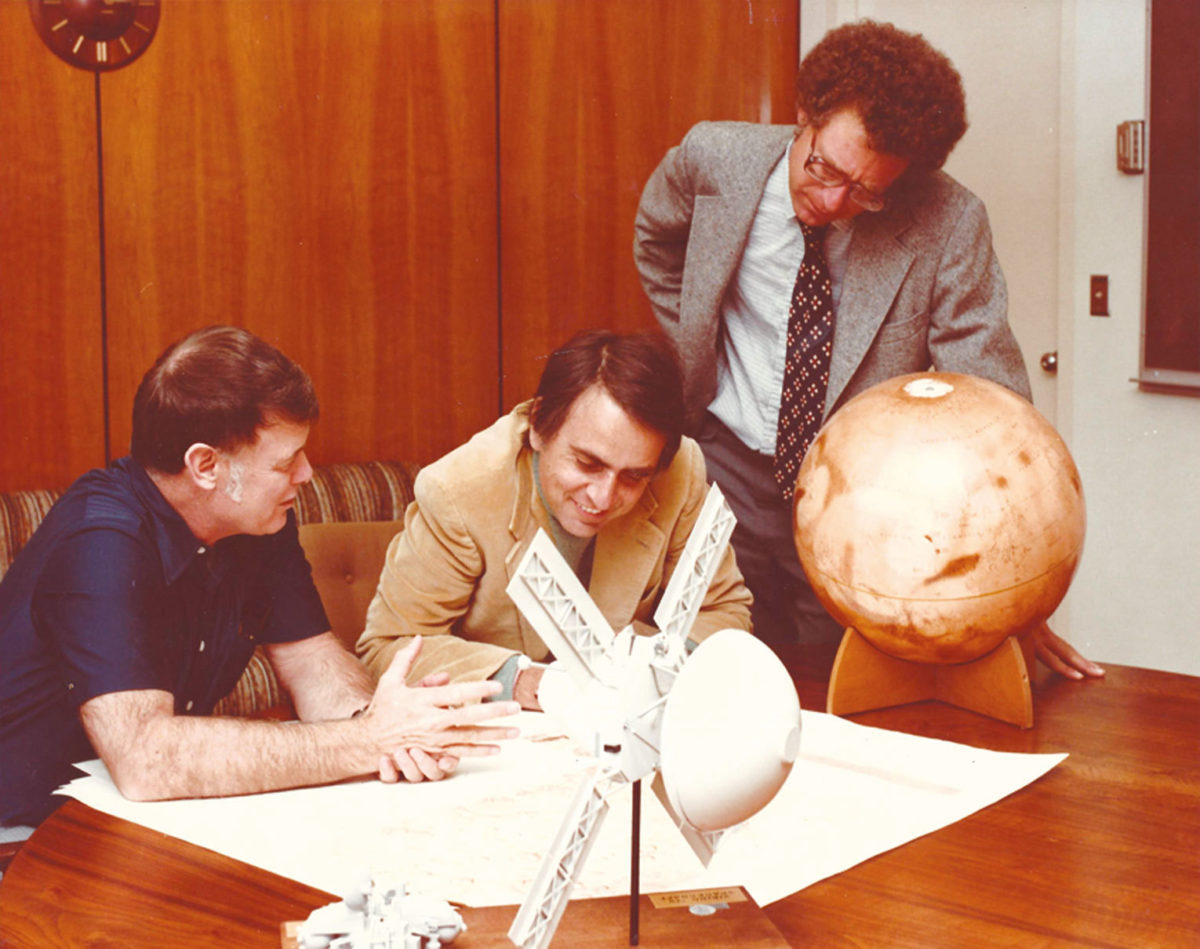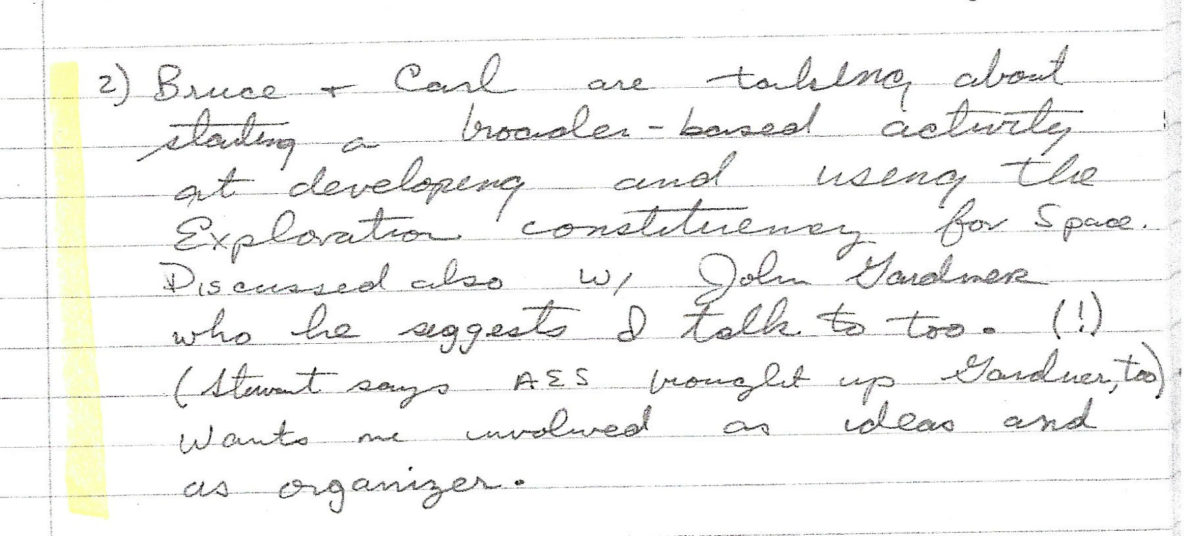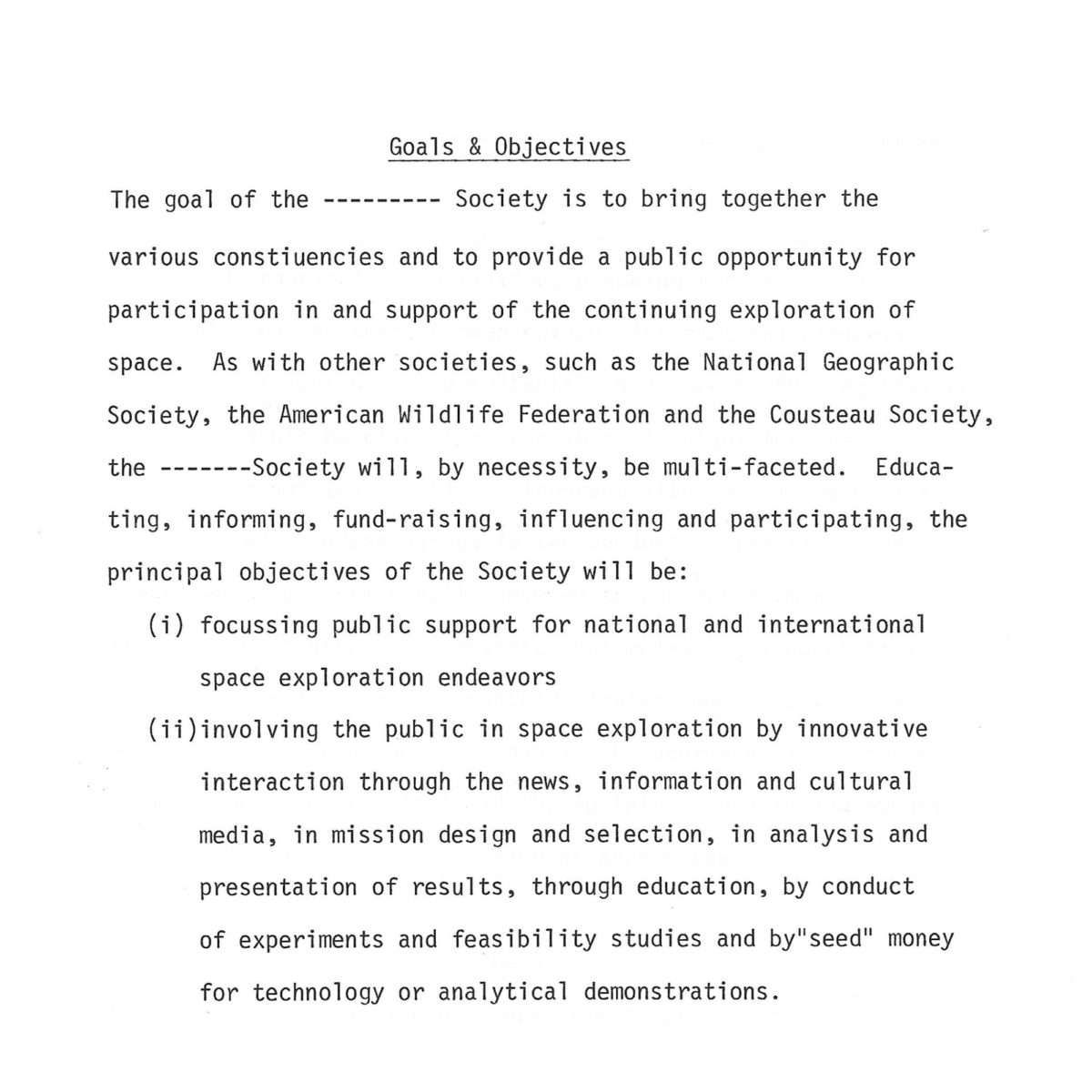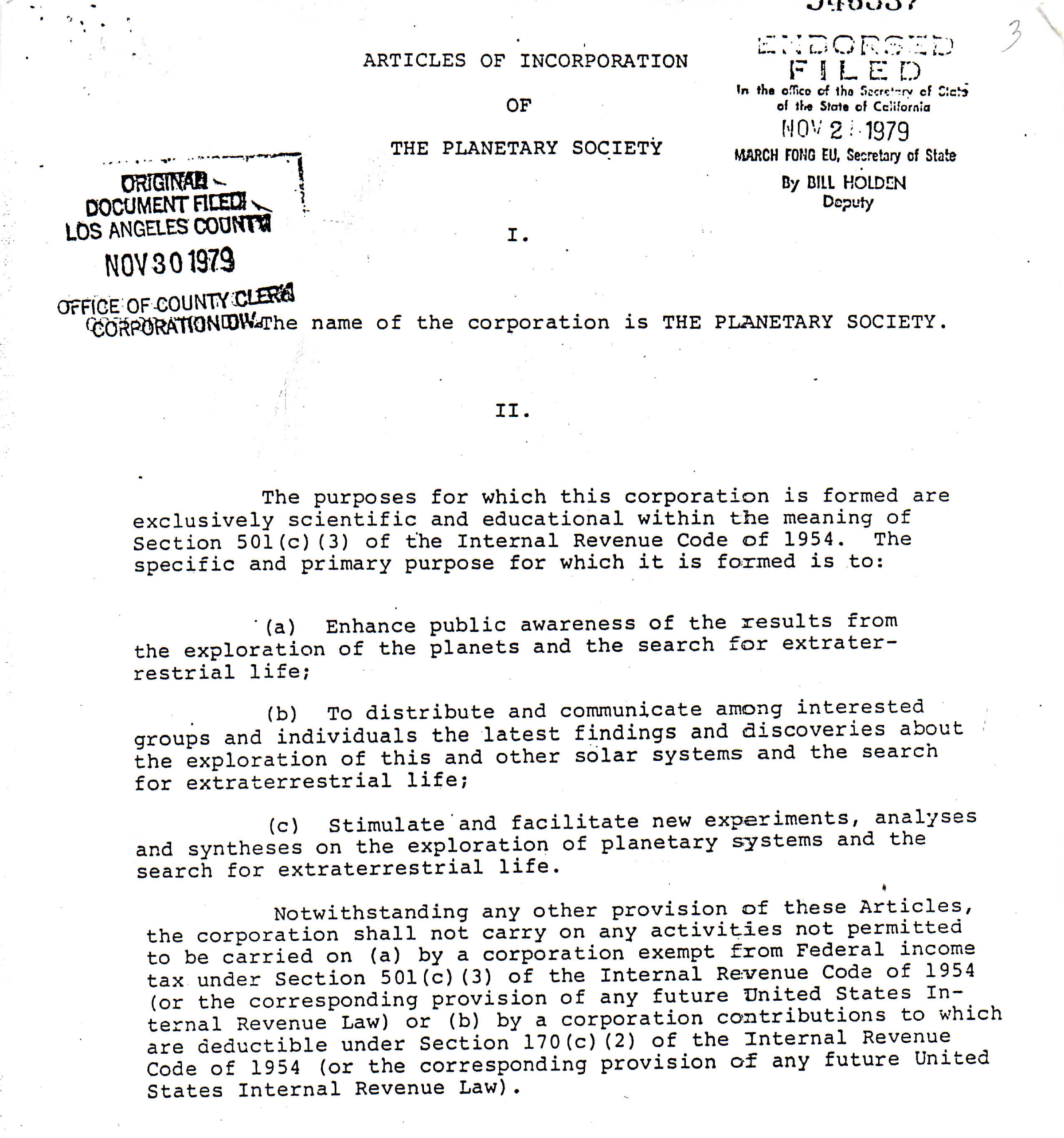Jennifer Vaughn • Nov 30, 2019
Creating A Movement for Space
A Look Back at The Planetary Society's Founding Documents
The --------- Society. During the months leading up to the founding of The Planetary Society, that was the organization's place-holder name. 40 years ago, Planetary Society founders Carl Sagan, Bruce Murray, and Louis Friedman took an idea and turned it into the public movement that continues to advance space science and exploration today.
The beginning of our beginning goes back to a need and a potential solution. It was 1979 and, after the initial exploration of our solar system in the 1960s and 70s, the U.S. was dramatically scaling back planetary exploration efforts. Society co-founders Carl Sagan – a well-known and well-respected planetary scientist – and Bruce Murray – the Director of the Jet Propulsion Laboratory (JPL) – were actively advocating for more missions and more exploration. As they did so, they learned that decision-makers were using perceived public apathy to justify defunding U.S. planetary exploration.

Having worked with the Mariner, Pioneer, Viking, and Voyager missions, Carl and Bruce had ample anecdotal evidence of significant public support for planetary exploration, but they were unable to prove the breadth and depth of this public support. This challenge led Carl and Bruce to wonder whether a grassroots public organization – such as the Sierra Club, Audubon Society, or Cousteau Society – could be created to prove and harness public support for planetary exploration.
Carl and Bruce identified Louis D. Friedman – a JPL engineer who was finishing a year in Washington D.C. as a Congressional Science Fellow on the Senate space subcommittee staff – as a potential organizer of such an organization. In May 1979, Lou met with Bruce, his boss at JPL, and learned about their idea for the organization.
Lou's personal diary gives a glimpse of this first meeting:

Lou had independently been thinking that a group focused on exploration could be a powerful tool to support future NASA missions. Lou was intrigued by the possibility of taking on the lead organizing role, even jotting in his diary, "Neat opportunity; can't pass up."
The proposed timeline was aggressive – Carl and Bruce envisioned incorporating the organization in about six months. Over those months, Lou was tasked with learning as much as possible about starting and running a successful non-profit.
The founders identified key tenets to form the foundation of the organization. Most importantly, the organization needed to be broad and open to the public. In an August 1979 draft description for the still-unnamed organization, Lou Friedman wrote, "As space exploration has no single rationale, neither does it serve a single constituency. Those who care about its conduct come from many walks of life and hold many outlooks on why and how space exploration should be conducted." Lou went on to write that the goal of this nascent organization would be to "bring together the various constituencies and to provide a public opportunity for participation in and support of the continuing exploration of space."
In the same memo, Lou drafted goals and objectives for the nascent organization:

By the end of November, just 6 months after the three co-founders began discussing the idea, the organization – which they named The Planetary Society – was ready to incorporate. The following memo memorializes the founders’ thinking about the purpose, status, and plans of The Planetary Society.

Finally, on November 30, 1979, the founders filed the organization's Articles of Incorporation.

Today, The Planetary Society is still pursuing the goals that Carl, Bruce, and Lou set decades ago. For four decades, our visionary members have been taking action for space, proving public support for planetary exploration and the search for life beyond Earth. And to us, this is still only the beginning.
Throughout 2020, The Planetary Society will be celebrating our 40th anniversary. As we celebrate we will continue to share archival documents, photos, and videos we've compiled over the decades. Thanks to a partnership with California’s Huntington Library, we know these archives will be maintained for generations to come.
Support our core enterprises
Your support powers our mission to explore worlds, find life, and defend Earth. You make all the difference when you make a gift. Give today!
Donate

 Explore Worlds
Explore Worlds Find Life
Find Life Defend Earth
Defend Earth

